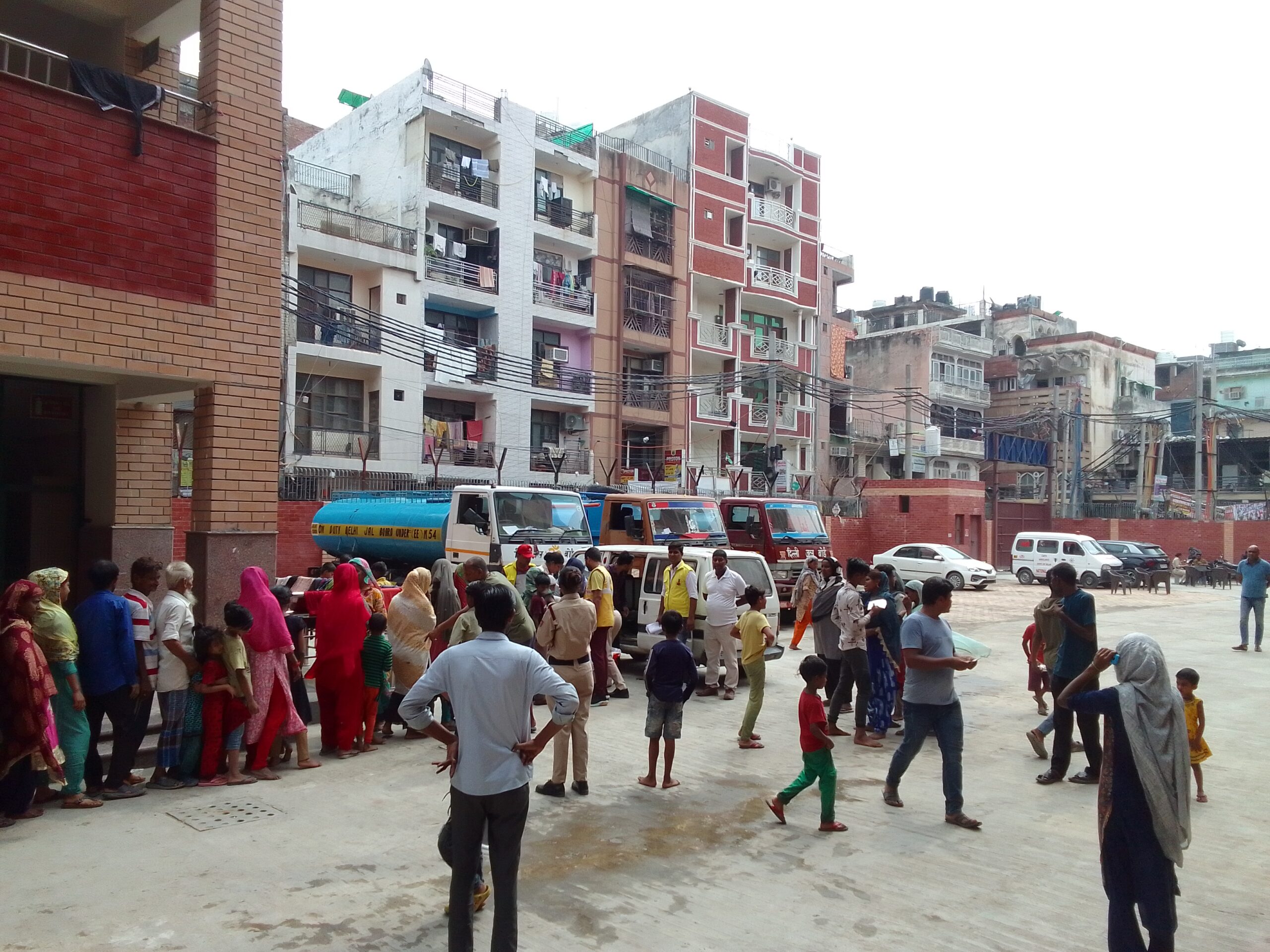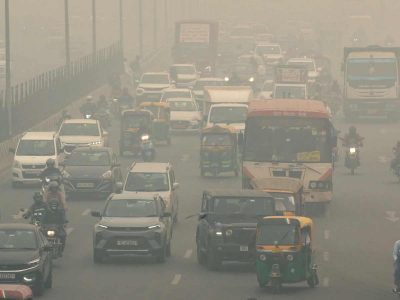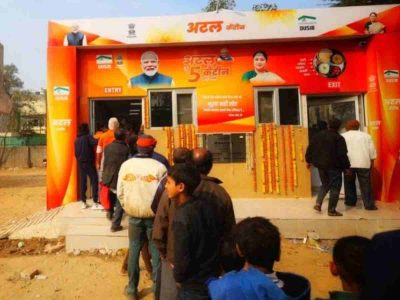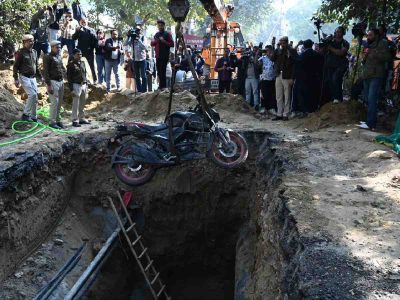In a flood relief camp at Government Sarvodaya School, Mori Gate, 32-year-old Preeti sat on a staircase with 2-3 other family members. A mere statistic among lakhs of victims affected and displaced by Capital’s ongoing floods, losing everything from roof, belongings to their dreams, Preeti lays bare her helplessness.
“When we went home [from camp] two days ago, we found that everything was submerged and destroyed. Even the books of children were drenched. Now the school has re-opened and teachers are sending work on WhatsApp. But how will they (children) do without textbooks!” Preeti, a tenant of Yamuna Bazaar area, told Patriot.
For the last week, she, along with four of her children and 10 other family members, is living in the camp.
She is concerned about herself and the families.
“The water level is increasing again. There is mud inside the house. We are here, so the fear of theft is also there. Our gas cylinder has been stolen by someone. However, there is no problem in the camp and we are getting enough food and facilities and living here peacefully. The government and NGO are providing full facilities.”
Her brother-in-law is also there and has lost his source of income.
“I work as a barber at a home nearby. All the equipment and shops have been destroyed in the flood,” said Manish.
For the relief of victims, Delhi government has converted many schools to shelter homes in flood-affected areas. More than 300 victims are living in Mori Gate camps, which is one of the biggest in Delhi.
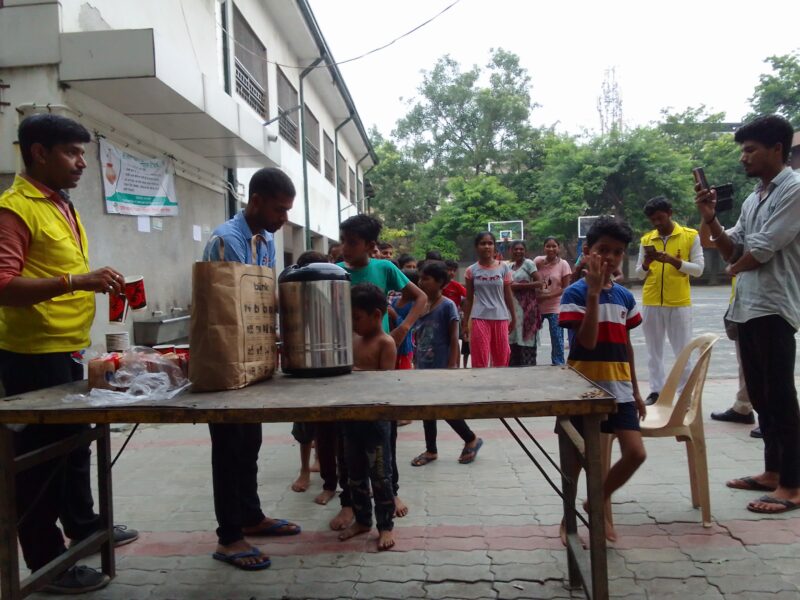
Poonam just returned to see her house in Yamuna Bazaar. She has been living there with her child and husband since childhood.
“My husband sells food items on a cart in Sadar Bazaar. But two of our carts are lost in the flood. Even today, the water in our house is up to my waist,” she said.
“I have never seen this kind of flood. My husband and I had saved some money. Today I went and tried to look for it in the mud and water but couldn’t find it,” she reveals painfully.
On July 16, Delhi Chief Minister Arvind Kejriwal also inspected a flood relief camp at the Mori Gate school. He also announced a compensation of 10,000 rupees to each family affected by the floods.
He tweeted in Hindi, “Several poor families living near the Yamuna river suffered huge losses. Some families lost all their belongings in their homes. We will give compensation of 10,000 rupees to each family as part of financial help. We will set up special camps for those who lost important documents like Aadhaar cards in the flood. We will provide school uniforms and books to students who lost them during floods.”
Friendship forever
This mayhem of a flood separated people not only from their belongings and families but pets too. Hundreds of cattle and pets died in the flood.
But it couldn’t separate Manju from her parrot. Both are living in the relief camp for the last week. She lost many belongings but didn’t forget to carry the parrot, ‘jaan’ in her words.
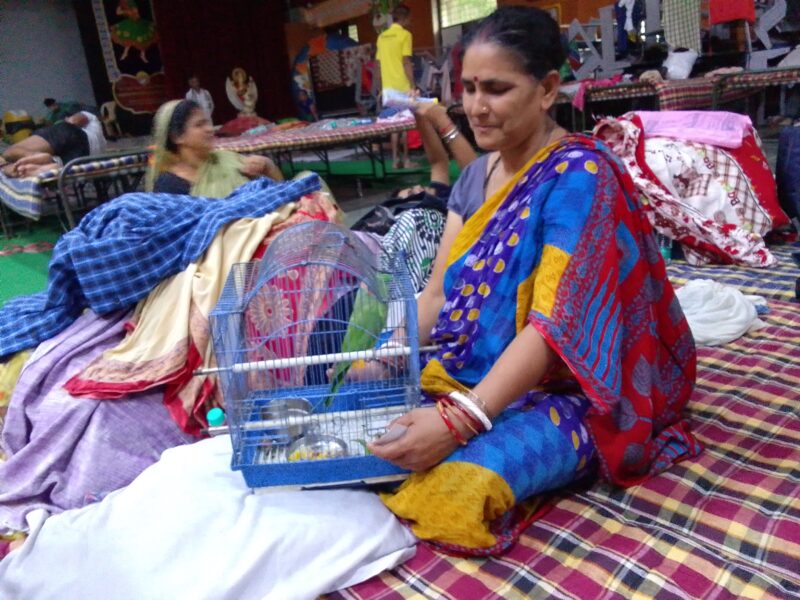
“This is my jaan (life). How can I forget it (parrot)? My documents — ID cards, vehicle’s documents — have all been destroyed. But I didn’t go anywhere without my parrot. Even when I travel to my hometown of Darbhanga in Bihar, I don’t leave it here,” the 50-year-old Manju told Patriot.
Students’ dilemma
Shobha was preparing for B.A. entrance examination but the flood destroyed not only her study material but dreams too.
“I’m very worried about my admission and am not able to eat food properly. My parents work as florists and earn barely 400-500 rupees. But now everything is lost. What should we do now?” she reveals her concern to Patriot.
Like Shobha, Muskan narrates a similar story.
She has filled in the BA (programme) admission form but now has no documents to submit.
“All my books are drenched. How will I complete my admission process? I have to miss my computer classes too. This government should do something for us,” said Muskaan.
Many students in the camp that Patriot met and talked to have a similar story to tell. Their studies too have been affected.
Awareness & counselling
A teacher who teaches in a school came in the evening and gathered everyone in an open space. He was making them aware of their rights (especially Right To Education or RTE), safety and other problems related to the victims.
“I teach Hindi at this school. There are 80 students here. So, I am trying to make them aware of their rights such as RTE, free education and am spreading awareness. It is our responsibility to ensure that their studies don’t get affected or that there is no gap in it. Since they have lost books and stationery, I will provide them with these from my own. Tomorrow I will go to another relief camp school,” Anurag Misra, a teacher, told Patriot.
Many NGOs and political leaders are also reaching camps and helping victims and providing them with food and other essential items. During Patriot’s visit, some people were seen distributing milk to children along with some food.
Civil defence has a duty of functioning the distribution and other safety as well as sanitation.
Waseem Ahmed Rizwi, divisional warden-153 of Delhi Civil Defence, told Patriot, “Civil defence volunteers are doing round-the-clock duty here. They are helping in distributing food and other support. If anyone needs to go to the hospital, our volunteers go with them. If anyone comes inside and goes out, they ask at the gate and make entry in the register. All are providing support to help each and every victim.”
Eye infection prevalent
The Dhobi Ghat area of south Delhi’s Jamia Nagar is also affected by flood. The low-lying area near Yamuna was affected and many families were displaced from here. The authorities made a relief camp in the government school in Jogabai Extension, where 65 families are living for the last one week.
Water tankers to ambulance facility are available 24 hours, while a team of two doctors is also available from 9 to 5. Some political leaders are also chipping in.
“The number of patients with eye infection are increasing daily. We are treating around 50 patients every day. Most of the cases relate to normal fever and cold. There is no panic, but chances of waterborne diseases will increase after the flood,” a doctor said.
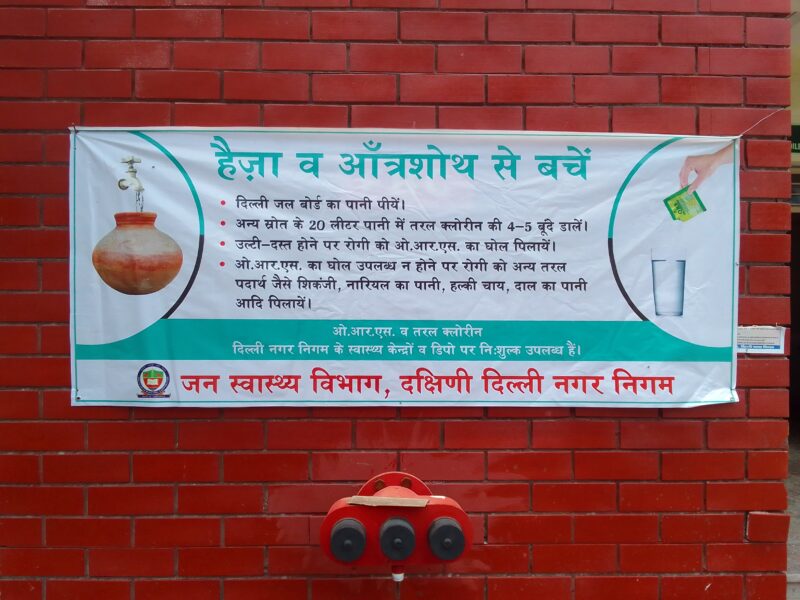
Mohsin, 41, is living in Dhobi Ghat for over two decades. He, along with his wife and five children, is also living in the camp.
A painter by profession, Mohsin told Patriot, “Our belongings are lost. The water is up to my knees. We live in a mud-house, which has cracked and is vulnerable. But here, we are getting all the facilities and there are no problems.”
Samar Khatoon, 60, and Shehzadi, 56, have also lost their homes in flood and are living here.
Samar and her three daughters survive by working in kothis but have now lost many belongings. The handicapped Shehzadi is facing further problems because her husband died a few months ago.
But no one seemed to have any problems in the camps.
Farmers’ agony
In the Mayur Vihar area, many migrants live in the khaadar area and do farming on lease. The flood, however, has destroyed their crop.
A farmer who worked on lease in Mayur Vihar area has lost all his crops and belongings in the flood. Now, the space under the flyover is his home just like it is for thousands of victims.

“The owner of the [farming] land will ask for rent but I don’t have money. Let alone rent, I don’t have even food for myself. Sab kucchh barbaad ho gaya (Everything has been destroyed). I don’t know what will happen ahead — dekha jayega,” said the farmer, who hails from Badaun in Uttar Pradesh.
Another farmer Yogendra has a similar story to tell.
“I grow vegetables in Yamuna Khaadar and have cattle. All of our belongings have been submerged. Our cattle was also stuck but rescued. Now, I am forced to live here in a tent,” he said.
Authorities in action
Sandeep Dutta, Sub Divisional Magistrate (SDM) of Mayur Vihar, told Patriot, “We have installed three relief camps in Mayur Vihar area’s DND Pushta, NH-24 and flyovers where more than 10,000 affected people are living. We manage food at least three times (or more sometimes) for them. Medical camps are also running in all the three camps. Toilet facilities are also good.”
He said further, “Apart from this, we have tied up with an NGO. We have started some extra-curricular activities, like drawing among others, for children’s entertainment. Otherwise, they roam here and there. We have also written a letter to authorities to provide books and dresses again to the children, since the ones given earlier are lost. Around 150 cattle and 200 street dogs have been rescued. We are trying our best. Water is also receding and the situation is under control.”
Chance of infection and care
Dr Varinder Singh, professor of Kalawati Saran Children’s Hospital, said, “We are treating patients as before and don’t have any official data about the cases due to flood. We don’t identify patients based on flood or otherwise. Ailments like diarrhoea, loose motion, jaundice, and eye infection may increase due to flood. People are cramped for space in camps, so chances of infection are more.
“So, people should take precaution in flood-affected areas. They should not drink water from the hand-pump, and only use tanker water which the government is providing, or boiled water. Secondly, they should avoid regular hand-shakes and if anyone has any infection, he should distance himself so that the infection does not spread,” he advised.

